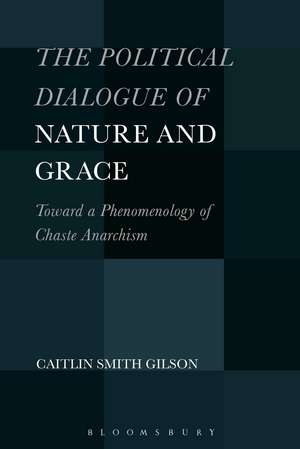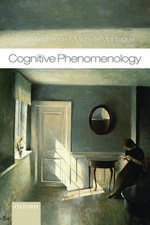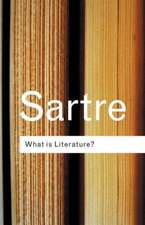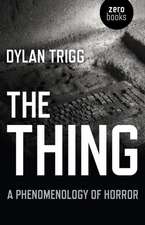The Political Dialogue of Nature and Grace: Toward a Phenomenology of Chaste Anarchism
Autor Dr. Caitlin Smith Gilsonen Limba Engleză Hardback – 23 sep 2015
| Toate formatele și edițiile | Preț | Express |
|---|---|---|
| Paperback (1) | 258.96 lei 6-8 săpt. | |
| Bloomsbury Publishing – 22 mar 2017 | 258.96 lei 6-8 săpt. | |
| Hardback (1) | 775.35 lei 6-8 săpt. | |
| Bloomsbury Publishing – 23 sep 2015 | 775.35 lei 6-8 săpt. |
Preț: 775.35 lei
Preț vechi: 1113.82 lei
-30% Nou
Puncte Express: 1163
Preț estimativ în valută:
148.36€ • 154.90$ • 122.79£
148.36€ • 154.90$ • 122.79£
Carte tipărită la comandă
Livrare economică 05-19 aprilie
Preluare comenzi: 021 569.72.76
Specificații
ISBN-13: 9781501308185
ISBN-10: 1501308181
Pagini: 328
Dimensiuni: 152 x 229 x 19 mm
Greutate: 0.61 kg
Editura: Bloomsbury Publishing
Colecția Bloomsbury Academic
Locul publicării:New York, United States
ISBN-10: 1501308181
Pagini: 328
Dimensiuni: 152 x 229 x 19 mm
Greutate: 0.61 kg
Editura: Bloomsbury Publishing
Colecția Bloomsbury Academic
Locul publicării:New York, United States
Caracteristici
A theological and philosophical perspective on the political dimensions of human beings and the nature of society
Notă biografică
Caitlin Smith Gilson is Tutor in Philosophy and Theology, and Acting Dean at Newman College Ireland. She is the author of Metaphysical Presuppositions of Being-in-the-World (2010) and The Philosophical Question of Christ (2014), both published by Bloomsbury.
Cuprins
AcknowledgementsPrefaceA Note on Context Introduction: Stating the ProblemChapter I: Rebellion of the Gladiators: The Disappearance of Man's Open NatureChapter II: Calderon and the Chaste AnarchismChapter III: The A-Historical Temporality of the Chaste AnarchismChapter IV: The Groundwork for the Christian Polis: Noli Me TangereEpilogue: The Polis and the Seven Last Words of ChristBibliographyIndex
Recenzii
In this intriguingly diverse reflection Caitlin Smith Gilson ably grasps the new spaces in which all serious and viable theology now operates and has always covertly operated: the space 'between' nature and grace, and the space 'between' the metaphysical concerned with being, and the metapolitical concerned with cosmic order and morality. She also realizes how it is often literary drama which has been able, as with Calderon, to 'stage' these tensions, or a poetic thought like that of Leon Shestov which has been able to insist (beyond 'philosophy') on both the unfathomability of nature and upon its ultimate ethical bearing. In order to witness at once to the structure of reality and yet to the good, revelation as truth requires to be 'staged' in a Christian polity of 'chaste anarchy' that is at once required and yet seemingly 'impossible.' Thus, as for both the Russian and the Atlantic margins of Europe, the question of an eschatological Rome is finally, as Gilson so insightfully realizes in the wake of Shestov, precisely what links the seemingly different questions posed by Athens and Jerusalem. Outside this question, given the instance of Christian revelation, there can be no serious pondering of either given reality or divine imperative, and because it lacks this pondering, which discloses the hidden co-composition of ontology with political practice, secularity is unable to recognize itself. Gilson thereby points us towards the only viable future theological agenda, in contrast to any sterile and now faintly ridiculous pursuit of either 'pure' doctrine, or the 'pure' philosophy of religion.
This is a singular book whose author has an insightful philosophical voice and an engaging theological voice. Caitlin Smith Gilson is intellectually passionate and existentially engaged with themes that spill over the normal academic divisions between theology, politics, philosophy and poetics. It is written with nice touches of irony and humor, and is marked by a very apt sense for citation. More than just a scholarly report on research done by others, it a serious first-order engagement with the matter itself. There is something poetic, rhapsodic, inspired even about this work. At times it communicates to one as something like a song of mindfulness, in both the philosophical and theological registers. Caitlin Smith Gilson's voice should be heard. Warmly recommended.
This is a singular book whose author has an insightful philosophical voice and an engaging theological voice. Caitlin Smith Gilson is intellectually passionate and existentially engaged with themes that spill over the normal academic divisions between theology, politics, philosophy and poetics. It is written with nice touches of irony and humor, and is marked by a very apt sense for citation. More than just a scholarly report on research done by others, it a serious first-order engagement with the matter itself. There is something poetic, rhapsodic, inspired even about this work. At times it communicates to one as something like a song of mindfulness, in both the philosophical and theological registers. Caitlin Smith Gilson's voice should be heard. Warmly recommended.

















